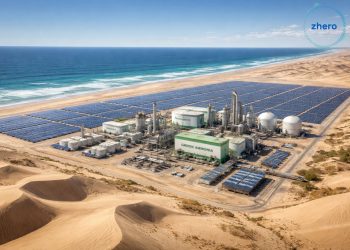
Namibia’s mining industry has warned that the government’s proposal to enforce a 51% local equity stake in new mining ventures risks deterring foreign investment and undermining the sector’s long-term viability.
The reaction follows a pronouncement by Deputy Prime Minister and Minister of Industries, Mines and Energy, Natangwe Ithete, who said the proposed 51% ownership threshold is intended to ensure Namibians gain a sustainable and equitable share of the sector’s long-term benefits.
He added that the Minerals Bill review will include wide-ranging stakeholder consultations to bring the legislation in line with modern industry standards.
Speaking at the 2025 Mining Expo in Windhoek, John Roos, First Vice President of the Chamber of Mines and Country Manager of B2Gold Namibia, said a narrow focus on equity stakes overlooks the broader economic benefits already accruing to Namibia under current frameworks.
He warned that foreign investors may divert their attention to countries offering more favourable terms.
“The focus should not be solely on equity ownership. There will be reductions in foreign direct investment, and mining companies overseas will realise there are better opportunities in other jurisdictions. Locally, there is insufficient capital to support the highly capital-intensive mining and exploration sector,” Roos said.
He argued that meaningful Namibian participation should be embedded across the mining value chain, including procurement, skills development, and local service provision, rather than concentrated on ownership percentages.
“The conversation must shift to the entire value chain. Namibians need to be involved through local procurement, training, and development. It is not about owning 50% of a mine. From 2015 to 2019, shareholders received no returns, as capital had to be repaid first. During this period, there were no shareholder payments, yet government benefited from day one through royalties, export levies, and CSR initiatives,” he said.
Roos cited figures from B2Gold’s operations to show that the Namibian government’s share of revenues has historically exceeded that of private shareholders, reinforcing that value is realised through sustained engagement rather than upfront equity.
“Looking at the 10-year period from 2015 to 2024, total returns to shareholders amounted to 49%. In contrast, government, through taxes, royalties, levies, and CSR obligations, received 51%. This clearly shows that Namibia’s share of the benefits exceeded that of the shareholders,” Roos added.
Chamber of Mines President and QKR Namibia Managing Director, George Botshiwe, said the mining sector supports economic empowerment, but cautioned that ownership is just one component of a broader empowerment strategy.
He emphasised the need for Namibia to design its own policies based on domestic realities.
“As a Chamber, we are aware of the ongoing national discussions around shareholding and ownership in the mining sector. We firmly believe that Namibia must develop its own homegrown solutions for empowerment. Ownership is only one avenue; there are various ways to empower Namibians within the mining industry beyond shareholding,” Botshiwe said.
He stressed that the long-term nature of mining requires greater attention to initiatives that provide immediate and visible benefits to communities, such as procurement, corporate social responsibility (CSR), and local service provision.
“Mining is a long-term investment. From exploration to production, it can take years before any shareholder sees returns. Therefore, we must explore other ways for local communities to benefit from the industry, including procurement, CSR activities, and service provision across the entire mining value chain. This approach ensures that empowerment is tangible and immediate,” he said.
Botshiwe noted that the Chamber is in ongoing discussions with government and other stakeholders to expand empowerment opportunities, with the goal of making mining’s benefits more visible to ordinary Namibians.
“We are in active discussions with the government, shareholders, and other stakeholders to broaden these empowerment avenues. The goal is to ensure Namibians feel the benefits of mining in their daily lives. We must avoid replicating models from other countries and instead develop a formula that works for our context. The focus must be on meaningful participation and visible impact on the ground,” he said.
Economist and Cirrus Capital Co-Founder, Rowland Brown, said public discourse has often failed to distinguish between ownership of minerals and mining operations, a misunderstanding that could distort policy formulation.
“There is an important distinction between minerals and mines. Namibians, through the State, own the minerals, but mines are the mechanisms through which these minerals are extracted and developed. The two are interdependent and must work in close alignment. Failing to understand this distinction poses serious risks to Namibia’s future,” Brown said.
He argued that the development of capital markets presents a viable path to broaden Namibian ownership in mining, allowing citizens to invest in projects via savings and pension funds.
“Allowing ordinary Namibians to invest in and become shareholders in local mines is achievable. While challenging under current structures, it is not technically complex. Capital market development is a critical avenue for broadening local ownership, and discussions at events like this should include how capital markets can channel Namibian savings into the extractive sector,” he said.
Brown also highlighted the need for greater scrutiny of how state revenues from the mining sector are used, saying perceptions of exclusion often stem from weak public resource management rather than insufficient private sector contributions.
“There is little focus on how the significant tax revenues paid to the state are being used. Namibians are justified in feeling left out of the benefits of the extractive industry, but the problem lies not just in private sector contributions, but in how public resources are managed and utilised. Namibia has the second-highest tax-to-GDP ratio in the world, yet developmental outcomes remain lacking,” he said.







